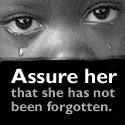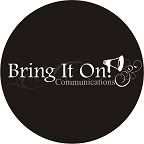We as humans like to make plans for our lives. Sometimes, things do not turn out as we’d hoped. And circumstances don’t turn out as we’d like. In his debut book, ‘Plan B: What Do You Do When God Doesn’t Show Up the Way You Thought He Would ?,’ Pete Wilson offers some Godly wisdom on how to deal with this tough aspect of life on this planet.
?,’ Pete Wilson offers some Godly wisdom on how to deal with this tough aspect of life on this planet.
Here is the description of ‘Plan B ’ from the back of the book:
’ from the back of the book:
What do you do when your dreams are shattered? What do you do when your life isn’t turning out the way you thought? What do you do when you have to turn to Plan B?
Pete Wilson reaches beyond the typical Christian response to offer frank understanding, honest encouragement, and real hope for your Plan B reality. Drawing on real-life stories from the Bible (David, Joseph, Mary and Martha) and the present day, he writes to help you:
· move past the feelings of crisis: panic, fear, paralysis, and overcontrol
· see God in your circumstances – even when he doesn’t seem to be there at all
· make peace with doubt, which can actually be a profession of faith
· find hope through the redemption power of community
· ask the right questions in order to find real, satisfying answers
· explore the relationship between shattered dreams and true spiritual transformation
Here is Pete’s biography:
Pete Wilson is the lead pastor of Cross Point Church in Nashville, Tennessee, the second church he has planted in the last seven years. He graduated from Western Kentucky University with a degree in communications and then attended seminary at Southern Seminary in Louisville, Kentucky.
Pete’s desire is to see churches become radically devoted to Christ, irrevocably committed to one another, and relentlessly dedicated to reaching those outside of God’s family. He is married to Brandi Wilson, and they have three wild sons: Jett, Gage, and Brewer.
Here is a video of Pete introducing ‘Plan B :’
:’
In the chapter entitled ‘Don’t Run,’ Pete points out the fact that we as a species have a tendency to do just that:
It happens so easily in a crisis. Our trials of life seem to chip away at us, leaving us exhausted, confused, and vulnerable. We resign ourselves to the fact that things simply are the way they are and there is no hope they will ever be any different. Feeling hopeless, we either run, taking things into our own hands, or we give up instead of waiting on God to act. (p. 23)
Pastor Pete uses many real-life people from the Bible to illustrate his points. He uses King David throughout the book (as well as Joshua, Joseph, Mary and Martha, plus real-life people in his life and in his ministry). David was well aware that, despite the fact that he was king of Israel, he was not in control. Pete uses the example of the time that David’s son, Absalom, power-grabbed his father’s throne and David did not fight for it:
In this moment David is doing more than giving up his throne. He’s specifically recognizing the fact God is God and he is not! He’s recognizing the reality that all control is simply an illusion and surrender to God is not just the appropriate option but the only option. Just because my will won’t be done, he’s saying, doesn’t mean God’s will won’t be done. I’m not going to try to control and maintain what I can’t control and maintain. This is not the story I would write, but hey, I’m not God. I will abandon my dream, but not my God.
The greatest of all illusion is the illusion of control. (p. 31)
I know I personally have struggled with this one – wanting to be in control (just ask my husband, Fred!...). Pete offers some options to this matter of control. He says, when dealing with shattered dreams and unmet expectations, we have three options for how to react. We can be fearful, angry, and disappointed. We can keep trying harder. Or we can take the third option:
You can get to the place where you can say, “Not my will, but your will. I’m not in control. You are.”
If you can do that, if you can leave the puppet strings in the hands of someone who actually knows what he is doing, you’ll have a lot better chance of surviving your shattered dreams. (p. 35)
A crucial step we need to take once we take the plunge to trust that the Lord knows better than us is to keep the lines of communication open. Joshua, Moses’ assistant, knew the importance of that when he was with Moses meeting face-to-face with God in the “Meeting Tent,” as noted in Exodus 33:
He [Joshua] learned the truth that makes all the difference: constant contact with the Creator is essential for transformation living. If you want faith enough to live the life God’s called you to live, time with God is simply a must. And that applies double when you’re facing a Plan B situation. (p. 49)
Pete has noticed that our world has a pattern of hurry and a pattern of debt. There are also the prevalent patterns of fear and anxiety. But the Bible provides an antidote to those worldly patterns:
But how do we break free of these patterns of fear? We’ve already learned them, right? They’re already stored up in our brains. How can our minds be renewed, our fear center restrained?
Proverbs 3:5 suggests a place to start:
Trust the Lord with all your heart,
and don’t depend on your own understanding.
The implication here is that we can’t always trust our own minds because they’ve been trained by the patterns of this world. We can’t always trust in the red flags our minds throw. We can’t live in the pattern of fear. It’s possible, in fact, that God may call us to run in a direction diametrically opposed to where our fearful minds tell us to go. (p. 57)
Pastor Wilson suggests that we look at our circumstances from a different perspective:
I’m wondering how different life would be for each one of us if we chose to view our circumstances and our relationships as the gifts they are. What if we viewed our hardships and challenges as opportunities to be the men and women God has created us to be? What would happen if we stopped grabbing for what we’re owed and tried to receive each moment with gratitude?
Yes, even the unfairness of our Plan B pain.
The thing is, God is God. He doesn’t owe any of us anything.
But he does give us everything, including himself. (p. 97)
Pete shares with us the greatest fear he has for us:
…my greatest fear for my life and for yours is that we’ll just get busy and distracted and settle for a mediocre, unexamined life. It’s that we’ll just settle into life as usual and never become the persons God intended for us to be.
And here’s something I’ve been wondering as I’ve studied and prayed about this book. Could it be that we need our Plan B situations to rescue us from that kind of life?
Do we need our tragedies in order for God to transform us? (p. 193)
I happen to personally agree with that sentiment. I interpret the financial crisis in the United States over the last year and a half or so as one way God can get our attention. We have had our ‘stuff’ stripped away, and many of us, in turn, have spent more time in prayer, in the Bible, and with our church community.
I thank God for the struggles which I have endured in my lifetime. And I thank Him in advance for the ones to come (we know they will come). And I thank Pete Wilson for writing a book that shows us that our trials and struggles can turn out for good (Genesis 50:20; Romans 8:28).
This book includes a Study Guide for Thought and Discussion. I would highly recommend this book for that purpose, particularly for younger and newer believers.
You can order this book here .
.
This book was provided by Thomas Nelson Publishers for review purposes.




























.jpg)







No comments:
Post a Comment